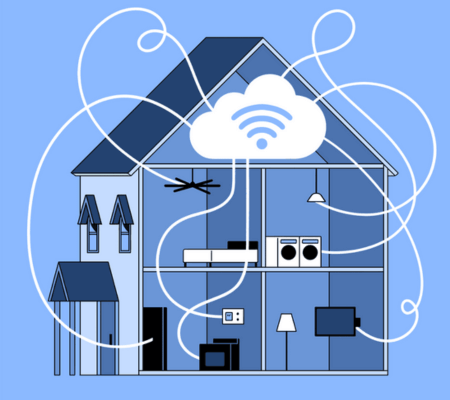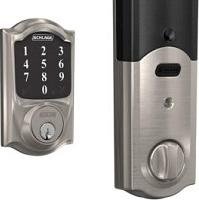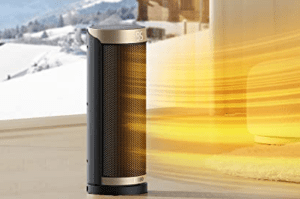
Is Natural Gas Heating Cheaper Than Electric?
The Cost of Installation
Electric heating systems often have a lower upfront cost compared to their gas counterparts. Installation typically involves placing baseboard heaters or heating panels throughout the home, which can be relatively straightforward and less invasive compared to installing gas furnaces, vents, and pipelines. However, the initial cost can vary depending on factors such as the size of the home and the specific heating system chosen.
On the other hand, gas heating systems may require more extensive installation due to the need for gas lines and proper ventilation. This can result in higher upfront installation costs, but in some cases, the long-term savings on energy bills may outweigh this initial investment.
Energy Efficiency
One of the key factors in determining the overall cost of heating is energy efficiency. Electric heating systems are known for their efficiency, as they can convert nearly 100% of the energy they consume into heat. This means that you get more bang for your buck with electric heat, as there is minimal energy loss during the heating process.
Gas heating systems, while still efficient, may experience some energy loss through the combustion process and heat exchange. However, modern gas furnaces have become increasingly efficient over the years, with many models boasting high-efficiency ratings that rival electric heating systems.
Cost of Energy
The cost of energy is where the debate between electric and gas heat becomes more nuanced. The price of electricity and natural gas can vary significantly depending on factors such as location, market demand, and supply chain disruptions.
In some areas, electricity may be cheaper than natural gas, making electric heating a more cost-effective option. Conversely, in regions where natural gas is abundant and relatively inexpensive, gas heating may offer greater savings on energy bills.
Maintenance and Repairs
Another consideration when comparing electric and gas heating is maintenance and repair costs. Electric heating systems generally require less maintenance since they have fewer moving parts and no combustion process. Routine maintenance for electric heaters typically involves cleaning or replacing filters and checking electrical connections.
Gas heating systems, on the other hand, may require regular inspections, cleaning, and adjustments to ensure safe and efficient operation. Additionally, gas furnaces are susceptible to wear and tear over time, potentially leading to the need for repairs or replacement parts.
Environmental Impact
In recent years, there has been growing concern about the environmental impact of energy consumption. Electric heating systems powered by renewable energy sources such as solar or wind can offer a more environmentally friendly alternative to gas heating, which relies on fossil fuels.
While natural gas is considered a cleaner-burning fuel compared to coal or oil, it still produces carbon emissions when burned for heating. Electric heating systems powered by renewable energy sources produce zero emissions during operation, making them a greener choice for environmentally conscious homeowners.
Conclusion
So, which is cheaper— electric heat or gas heat? The answer ultimately depends on a variety of factors, including upfront installation costs, energy efficiency, the cost of energy, maintenance and repair expenses, and environmental considerations.
In some cases, electric heating may offer greater long-term savings due to its high energy efficiency and potentially lower energy costs. However, gas heating may be more cost-effective in areas where natural gas is abundant and relatively inexpensive.
Ultimately, the best choice for your home will depend on your circumstances and priorities. Whether you opt for electric heat or gas heat, the most important thing is to ensure that your home is warm, comfortable, and energy-efficient.
The Thermostat in Heating Systems
The heating thermostat is important for controlling energy savings and achieving greater comfort in our homes. It is generally used to control and regulate the temperature of the rooms where our heating device is installed. Currently, there are many types of thermostats, ranging from analog to the most modern, that are fully digital.
1. Analog thermostats
They are the thermostats we have known all our lives. They are equipped with rotary control, and we can decide if we want to increase or decrease the temperature with which we want to heat the rooms.
The operation is quite simple since it uses a pair of metals of different materials that come together by making contact according to the system’s temperature. The boiler is turned on or off once the desired temperature is achieved. Most older boilers have a built-in thermostat.
✓ Advantage: they are very simple to install and easily accessible at the purchase price.
✖ Disadvantage: it is an obsolete technology in terms of manufacturing and inaccurate in exact temperature control.
2. Digital Heating Thermostats

These types of thermostats are much more accurate than analog ones. Their precision is exact, and their operation uses electronic devices and probes. In addition, they have a screen where the user can see the boiler’s temperature. Better performance is achieved by being very precise, which ultimately translates into savings for better consumption.
✓ Advantage: easy to install and control, with the most up-to-date technology, and generally cheap.
✖ Disadvantage: they are not programmable and are recommended for homes that are usually sparsely inhabited.
3. Digital programable thermostat or chronothermostat
It is a piece of equipment that replaces traditional thermostats and is only responsible for controlling the temperature. The main function of programmable thermostats is to program different temperatures at different times of the day. Hours are generally marked as “comfort” and others as “eco.”
The hours that we usually call comfort are when we are at home, and the temperature is what we want (higher in the winter and lower in the summer). While the hours called “eco” are those in which we are not at home, therefore, the start-up of our home’s air conditioning can be programmed. The house will already have the ideal temperature when you get home after a working day. In addition, when leaving home, the air conditioning is turned off to avoid unnecessary energy consumption costs.
The most modern Chrono thermostats can turn on the heating through mobile phones. This way, the heating can be activated a couple of hours before returning home.
✓ Advantage: the possibility of being programmable with great precision, versatility in configuration variations, and with proper use, we can achieve savings of 15-20% on our bill.
✖ Disadvantages: they usually have a high price, their use is more complex compared to other conventional thermostats, and batteries usually power them.
4. WIFI digital heating thermostats
These types of digital thermostats are innovative. Since you can see the temperature gradient through applications installed on mobile phones, they do not usually vary much in price compared to the previous ones, and their use is quite simple.
The market has a lot of variety, and the characteristics are usually similar. Therefore, before choosing any thermostat with WIFI, we must consider the type of heating system that we want at home. Not all thermostats are applicable for all types of installations.
As a general rule, when it comes to having a WiFi thermostat at home, you have to take into consideration price, whether we want it wireless or wall-mounted, if we want it only for heating or for air conditioning as well, what type of connectivity and use we are going to give you, or even the type of design.
It is important to know that if the heating system were a boiler, having a thermostat of this type would not be necessary since we would not get the necessary match.
| Technology | Characteristics | Price approx. |
Thermostat |
✓ Easy and intuitive ✓ Touch keys ✓ Weekly programming: 6 stages daily |
30 – $70 |
| Chronothermostat | ✓ Programmable lighting screen ✓ Regulation in modes: Manual – Auto ✓ Temperature regulation between 5ºC – 35ºC |
50 – $100 |
| Electric panel | ✓ Low energy consumption, Power 425 W ✓ Easy to install ✓ Length 60 cm, Depth 4 cm, Height 60 cm |
50 – $80 |
Electric Heating Panel or Converter

The electric heating panel, or convector, is an electrical device that directly heats the air that passes through resistances. These resistors are heated using an electrical current.
Most computers have an internal fan built to help circulate air more quickly. Since the hot air is less heavy, it rises and heats the rooms where this system is installed. These devices are easy to transport since they usually weigh very little, and many have wheels. They are easy to install and usually have low consumption. It is usually used for heating small rooms.
Advantages of having more technological and modern heating at home
Technological heating is an opportunity to equip our homes more intelligently. It is not a question of the future. Technology and changes are present in most things we least expect, and heating technology does not escape it. But do you know all the advantages you can have with more technological heating? There are many advantages, but we want to highlight the three most important.
✓ Savings: programming our heating systems as and when we want produces monthly savings of up to 20%.
✓ Comfort: with this type of heating, we can avoid wasting time and find our home warm whenever we want. We can control when to turn off the heating, if we have forgotten to do so, before leaving home.
✓ Environment: We can save a lot of energy by having more control over overheating systems. A saving that benefits our pockets and the environment directly.










